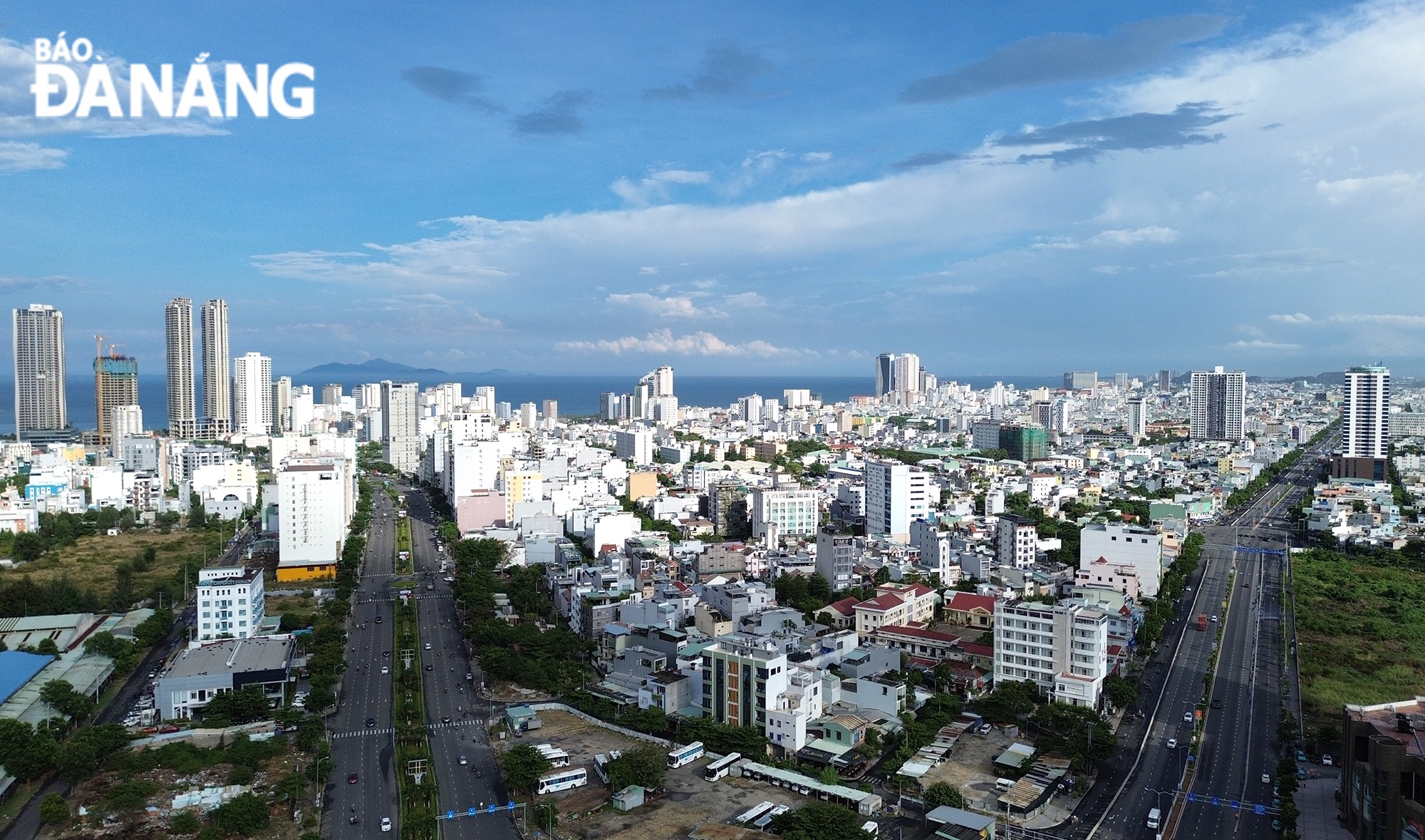Da Nang ranks fourth in PII rankings 2023
Da Nang has ranked fourth among the 63 provinces and cities nationwide in the Provincial Innovation Index (PII) 2023 rankings, according to the Ministry of Science and Technology.
 |
| A corner of Da Nang from above. Photo: VAN HOANG |
According to the PII 2023 results, the top 10 on the rankings consisted of Ha Noi (62.86), Ho Chi Minh City (55.85), Hai Phong (52.32), Da Nang (50.70), Can Tho (49.66), Bac Ninh Province (49.20), Ba Ria - Vung Tau Province (49.18), Binh Duong Province (48.64), Quang Ninh Province (48.03), and Thai Nguyen Province (47.75).
Also, the city has topped the PII 2023 rankings in the north-central and central coastal regions.
The PII 2023 results also clearly showed that Da Nang has strengths in pillars related to institutions; human capital and research and development; infrastructure; and impact. In particular, this is shown in research and development with 76.86 points; and ICT infrastructure with 99.44 points - highest score.
Da Nang's weakness is shown in its participation rate in scientific and technical research competitions; average production and business capital of enterprises; percentage of businesses with ISO certification; geographical indications granted protection certificates/total number of communes; and labor productivity growth rate.
The 2023 PII evaluates 52 indicators, divided into 7 pillars including: institutions; human capital and research and development; the infrastructure; development level of market; development level of enterprises; knowledge, creativity and technology products; and impact. This is a tool for localities to examine details in terms of output and input.
The PII aims to provide a general panorama of the socio-economic development model based on science, technology, and innovation of each provincial-level locality. It points out the strong and weak points, potential factors, and necessary conditions for boosting the science, technology and innovation-based development in each locality.
The PII supplies a scientific and practical foundation for agencies, organisations, and leaders of localities to build and implement policies to boost socio-economic development based on science, technology, and innovation. It is also helpful for investors to learn about the investment climate, conditions, and resources for production and business activities in different localities.
Reporting by VAN HOANG - Translating by M.DUNG